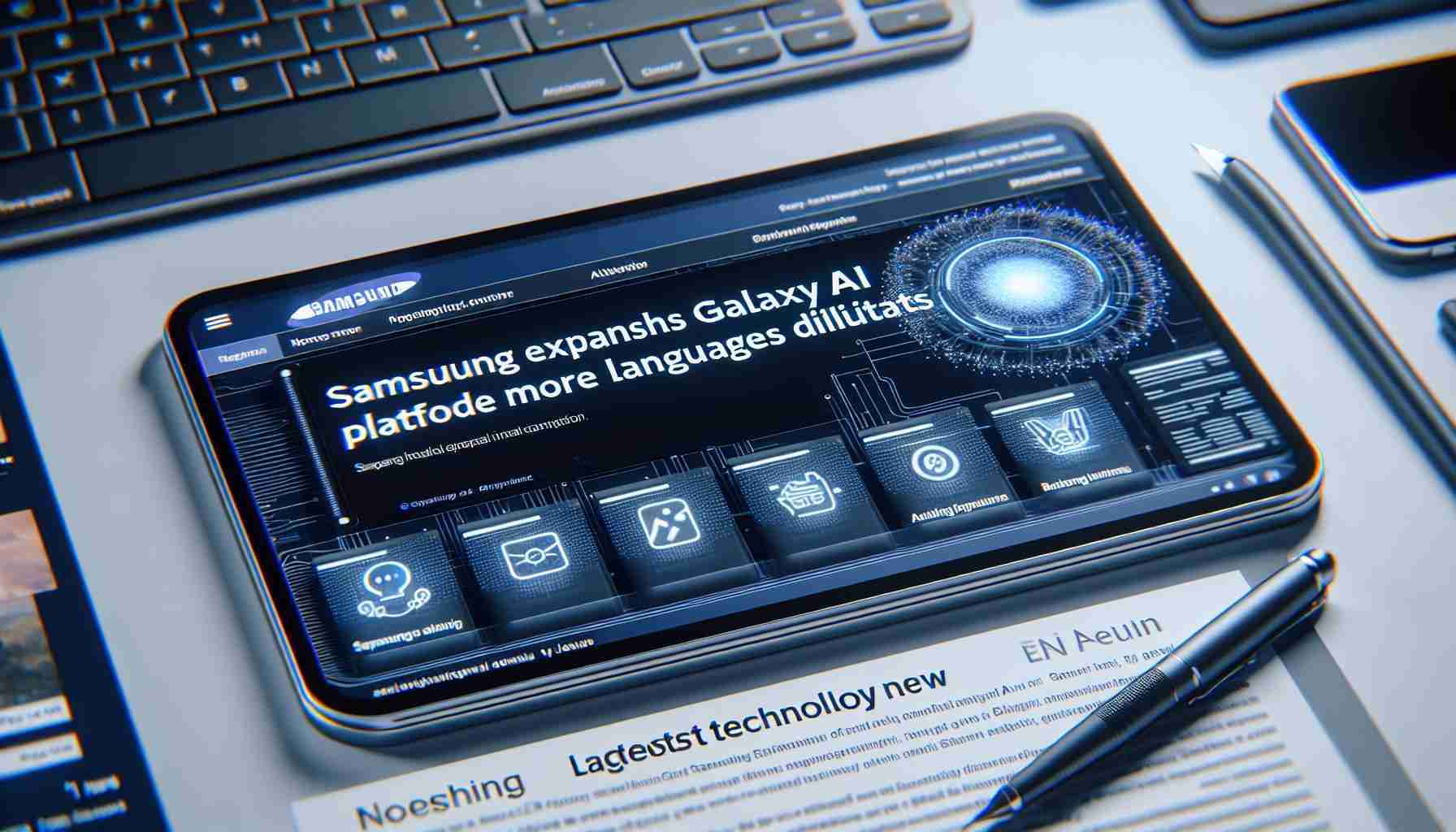Samsung has recently announced an exciting update to its Galaxy AI platform, which will now be available to a much broader audience. Following its initial release for select flagship phones from 2023, more languages and dialects will be supported, making it easier for people worldwide to use Galaxy AI.
This spring, Galaxy AI will add support for Arabic, Indonesian, and Russian languages. Additionally, Samsung will include Australian English, Cantonese, and Canadian French dialects. But the expansion doesn’t stop there. Samsung has confirmed that later this year, Romanian, Turkish, Dutch, Swedish, traditional Chinese, and European Portuguese will also be supported in Galaxy AI. Although the specific timeline for the availability of these languages is not yet determined, they are all set to be added throughout 2024.
This news is especially significant for individuals who have been unable to use Galaxy AI due to language barriers. With these new additions, a wider range of people will have the opportunity to benefit from the platform’s features.
Samsung’s commitment to making Galaxy AI accessible to as many people as possible is evident through these language and dialect expansions. After initially debuting on the Galaxy S24 series, Samsung has recently extended its AI features to older devices, including the Galaxy S23 series, Galaxy Z Fold 5, Galaxy Z Flip 5, and the Tab S9 family. With the introduction of new languages and dialects, Samsung’s mission to reach a global audience is unequivocal.
To access the new Galaxy AI languages and dialects, users will be able to download a language pack through the Settings app, free of charge. Although an official release date for the spring expansion has not been confirmed, it is expected to arrive soon.
With Samsung’s commitment to breaking down language barriers and expanding the capabilities of Galaxy AI, users around the world can look forward to a more inclusive and personalized experience with their devices.
The expansion of Samsung’s Galaxy AI platform to include support for more languages and dialects is a significant development for the company and its customers. This update will make it easier for people worldwide to access and benefit from the platform’s features.
The addition of Arabic, Indonesian, Russian, Australian English, Cantonese, and Canadian French languages will allow a broader range of users to interact with Galaxy AI. Furthermore, Samsung has plans to include support for Romanian, Turkish, Dutch, Swedish, traditional Chinese, and European Portuguese later in 2024. This commitment to adding support for multiple languages demonstrates Samsung’s focus on inclusivity and reaching a global audience.
By expanding its AI features to older devices as well, such as the Galaxy S23 series, Galaxy Z Fold 5, Galaxy Z Flip 5, and the Tab S9 family, Samsung ensures that a wider range of customers can benefit from the platform’s capabilities.
To access the new languages and dialects, users can simply download the appropriate language pack through the Settings app, free of charge. This makes the update easily accessible to all users, regardless of their location or device.
The industry for voice assistants and AI platforms is highly competitive, with companies like Apple, Amazon, and Google also vying for market share. Samsung’s expansion of Galaxy AI to support more languages and dialects is a strategic move to attract a larger user base and gain a competitive edge in the market.
Market forecasts for the voice assistant industry show strong growth in the coming years. According to a report by Allied Market Research, the global voice assistant market is projected to reach $7.79 billion by 2025, growing at a compound annual growth rate (CAGR) of 24.32% from 2018 to 2025. This indicates a significant market opportunity for Samsung and other companies operating in this space.
One of the key issues related to voice assistant technology is ensuring accurate speech recognition and understanding across different languages and dialects. Language and accent variations can pose challenges for voice assistants, as they need to accurately interpret and respond to user commands in various linguistic contexts. Samsung’s expansion of Galaxy AI to support a wide range of languages and dialects is a step towards addressing this issue and enhancing the user experience.
Overall, Samsung’s commitment to breaking down language barriers and expanding the capabilities of Galaxy AI positions the company well in the competitive voice assistant market. With a more inclusive and personalized experience, users around the world can look forward to leveraging the full potential of their Samsung devices.
